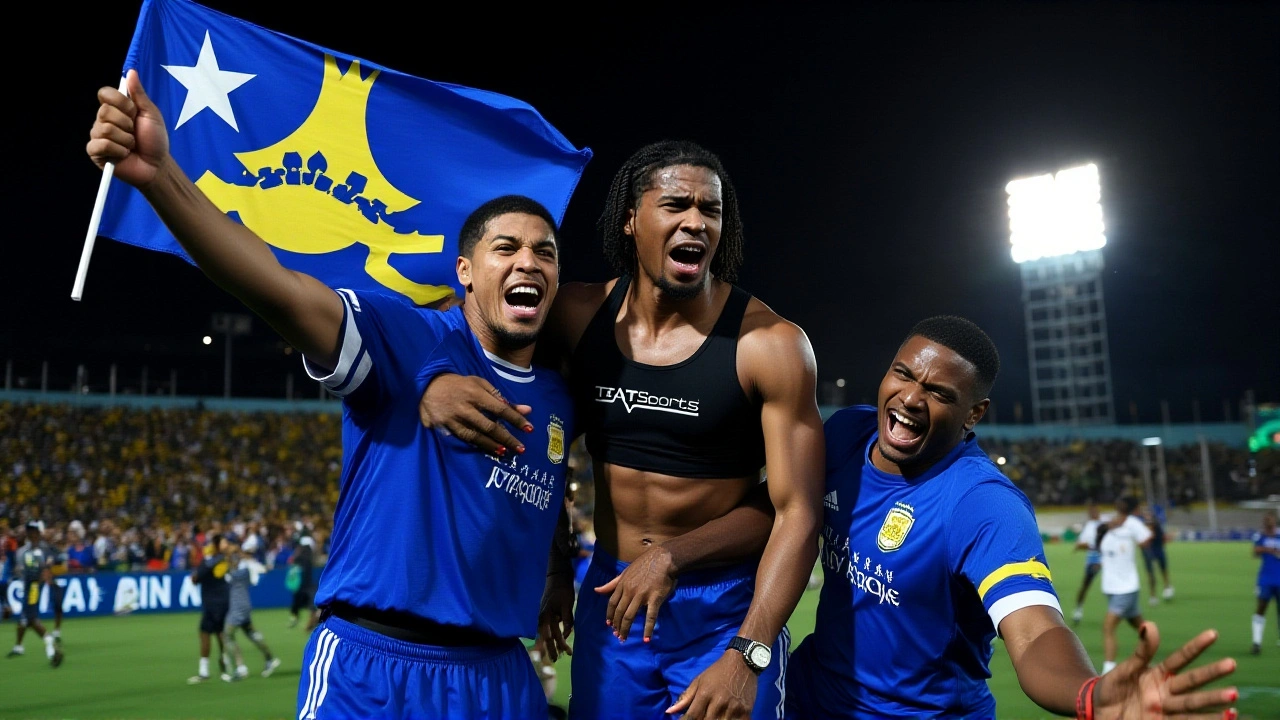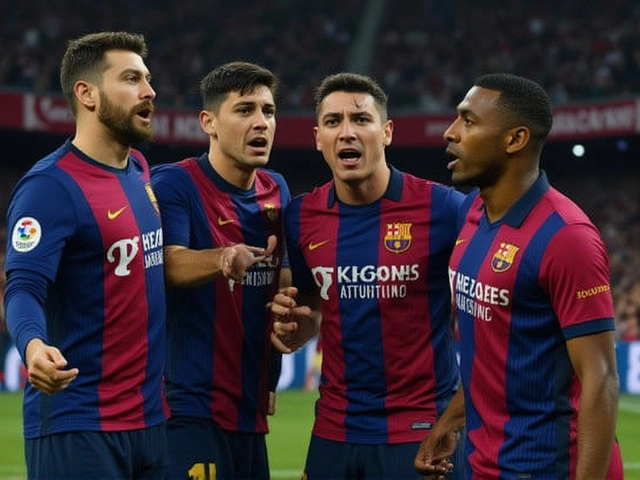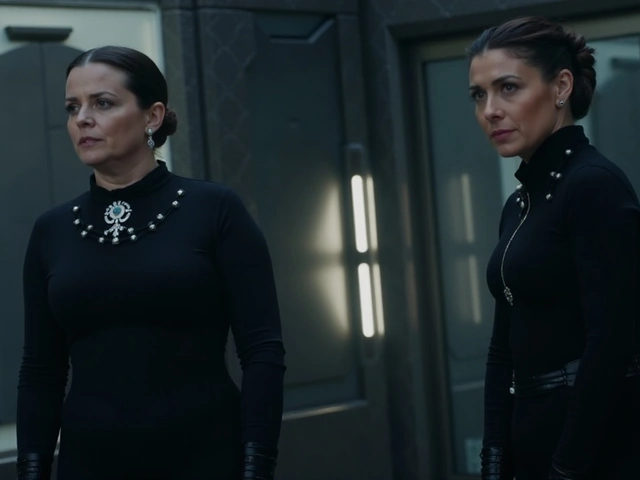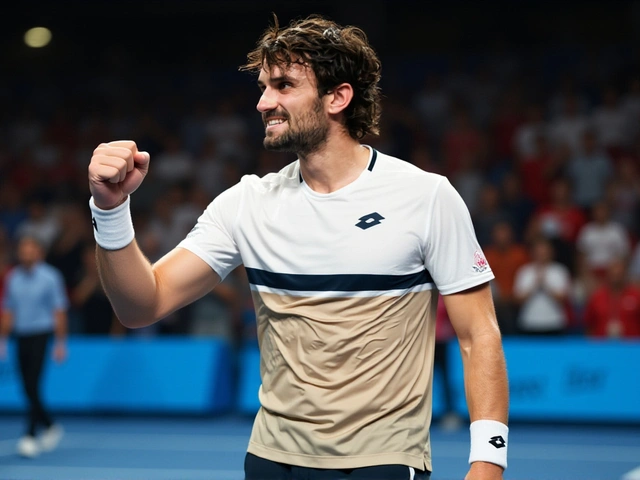
The smallest nation by population to ever qualify for the FIFA World Cup isn't a soccer powerhouse. It's Curaçao, a Caribbean island of just 165,000 people — smaller than many Indian suburbs — that stunned the football world by finishing unbeaten in Concacaf qualifying. On November 18, 2025, after a flawless 4-0-0 record in the third round of qualifying, Curaçao clinched one of the direct berths to the 2026 FIFA World Cup, set to be hosted across Canada, Mexico, and the United States. The celebration in Willemstad didn’t just last hours. It lasted days.
A Nation That Refused to Be Overlooked
For decades, Curaçao was just a footnote in CONCACAF football. Before 2010, it played as part of the Netherlands Antilles. When that entity dissolved, the Curaçao Football Federation (Curaçaosche Voetbal Bond) had to rebuild everything — infrastructure, youth programs, international recognition. Many assumed it would take generations. Instead, in just 15 years, they built a team that didn’t just compete — they dominated.Their third-round campaign was surgical: 15 goals scored, only 2 conceded. Four matches. Four wins. No draws. No losses. They beat Haiti — a traditional regional power — head-to-head, 2-1 in the decisive match. Haiti finished second with 9 points, but Curaçao’s +13 goal difference sealed it. No team in CONCACAF qualifying history had ever gone through a final group stage undefeated. Not Mexico. Not the United States. Not even Costa Rica.
The Players Who Made It Happen
The team isn’t filled with stars from Europe’s top leagues. Most play in the Dutch second division, in Latin American lower tiers, or even locally in Curaçao’s own league. But they play with something no salary can buy: collective hunger. One player, speaking off-camera after the final whistle, said: "I didn’t expect this. I thought Jamaica was strong. But we did it. Finally, we did it." Another added: "We will show everyone that we are small, but we are big at heart."That sentiment echoed through Willemstad’s streets. People danced in front of the Curaçao Football Federation headquarters. A local barber cut hair for free that night, painting the national flag on customers’ heads. A 72-year-old grandmother told AFP: "My husband passed away in 2012. He used to say, ‘One day, Curaçao will be on the world stage.’ I didn’t believe him. Now I’m crying.”
Why This Changes Everything
This isn’t just feel-good storytelling. It’s a seismic shift in how football is understood. For years, FIFA’s qualifying system favored populous nations with deep talent pools. But Curaçao’s rise proves that organization, culture, and belief can overcome sheer numbers. Their youth academy, funded partly by local businesses and Dutch diaspora donations, now trains 1,200 children — nearly 1% of the island’s population. That’s more per capita than Brazil.Their defensive record is the most telling stat: two goals conceded in four matches. One was an own goal. The other came from a 35-yard free kick. That’s not luck. That’s discipline. That’s tactical intelligence. The coach, a former Dutch second-tier player named Michael Mora, installed a 4-1-4-1 system built on compactness and rapid transitions. He didn’t have a star striker. He had five players who could run 12 kilometers a game.
What Comes Next
The 2026 FIFA World Cup begins June 11, 2026. Curaçao will be placed in a group with likely heavyweights — possibly Brazil, Spain, or Germany. They won’t be expected to advance. But they won’t be underestimated either. The team’s first training camp begins in January 2026 in the Netherlands, where they’ll play three warm-up matches against Eredivisie sides.There’s already talk of a national holiday on the day they play their first World Cup match. The island’s airport is upgrading its terminal to handle the expected influx of fans. A local brewery created a special beer called "Big at Heart" — 165,000 bottles, one for every citizen.
A Legacy Beyond the Pitch
Curaçao’s qualification has already inspired other micro-nations. Trinidad and Tobago’s youth federation is modeling its development program after Curaçao’s. The British Virgin Islands and Saint Kitts and Nevis are seeking FIFA grants to build similar academies. For the first time, the idea that "small" doesn’t mean "irrelevant" is becoming mainstream in global football.And maybe that’s the real win. Not the World Cup berth — though that’s historic. But the message it sends: size doesn’t determine destiny. Passion, structure, and belief do.
Frequently Asked Questions
How did Curaçao manage to qualify with such a small population?
Curaçao focused on youth development, training nearly 1% of its population — 1,200 children — through a centralized academy system funded by local businesses and Dutch diaspora support. Their tactical discipline, defensive organization, and team cohesion allowed them to outperform larger nations despite having fewer professional players. They didn’t rely on star power; they relied on system.
Who are Curaçao’s key players in the World Cup squad?
While no players currently compete in Europe’s top five leagues, standout names include goalkeeper Chadwick Rooda, who plays for FC Den Bosch in the Dutch second tier, and midfielder Yannick Pauwels, who leads the team with 4 goals in qualifying. Captain Sheldon Bateau, a veteran who played in Belgium and Turkey, brings leadership. Most squad members are from local clubs or lower-division European leagues.
What’s the historical significance of this qualification?
Curaçao becomes the smallest country ever to qualify for the World Cup by population, surpassing Iceland (340,000) in 2018. It’s also the first time a former Netherlands Antilles territory has qualified independently since the 2010 dissolution. Their unbeaten run in the final qualifying round is unprecedented in CONCACAF history, making them a symbol of what’s possible when resources are used strategically rather than abundantly.
How does Curaçao’s success impact other small nations in CONCACAF?
Trinidad and Tobago, Saint Lucia, and the British Virgin Islands have already begun modeling their youth programs after Curaçao’s. FIFA has pledged additional funding for small-nation academies following the qualification. The success proves that with proper investment in grassroots football — not just elite imports — even the smallest nations can compete at the highest level.
When and where will Curaçao play their first World Cup match?
The official group draw for the 2026 World Cup takes place in December 2025. Curaçao will be placed in Pot 4 as the lowest-ranked qualifier. Their first match is expected between June 11–15, 2026, likely in one of the U.S. venues like Dallas, Houston, or Miami. Their opening opponent could be a European giant — possibly Spain, Germany, or Belgium — making their debut even more historic.
Was Curaçao’s qualifying campaign truly perfect?
Yes. In the third round of CONCACAF qualifying, Curaçao won all four matches: 4-0 and 4-1 against unnamed opponents, plus a 2-1 win over Haiti and a 5-0 win over another group team. They scored 15 goals, conceded just 2, and earned 12 points — the only team in the entire 32-team qualifying process to go undefeated in the final group stage. Their goal difference of +13 was the best in their group and among the top three in all of CONCACAF.
12 Comments
Write a comment
More Articles

Barcelona vs Rayo Vallecano: Flick’s Lineup, Preview & Stakes
Barcelona heads to Vallecas with Hansi Flick’s revamped 4‑2‑3‑1, aiming to extend a solid start before the September break. De Jong returns, Lewandowski leads the attack, and a defensive reshuffle could decide the outcome.

Dune: Prophecy Episode Release Dates and Bene Gesserit Origin Story Unveiled
Dune: Prophecy, a new HBO series, ventures back 10,000 years to unravel the origins of the Bene Gesserit. Based on the novel Sisterhood of Dune by Brian Herbert and Kevin J. Anderson, this show features Emily Watson and Olivia Williams as Harkonnen sisters tackling threats to humanity. The series premiered on November 17, 2024, and follows a weekly Sunday night release schedule. With a notable cast, it promises an engaging dive into the expansive Dune universe.

Mark L
November 21, 2025 AT 12:52OMG I CANNOT BELIEVE THIS 🥹🔥 Curaçao just rewrote the rulebook. 165k people and they outplayed giants. I’m crying. This is the most beautiful thing I’ve seen in sports.